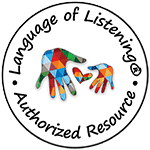“Mom, mom, MOOMMMMMMM!!!” This is how every other minute of my day went.
Kids live completely in the present moment, and it’s elegantly beautiful, but it can also feel very emotionally draining to a parent.
Before I knew It, I fell impatient with stopping the whining and started using a lot of empty praise. I wanted to raise a confident child, but unfortunately, I was turning my kid into a “praise junkie.”

It went something like this…
Him: I drew a picture!
Me: (struggling with authenticity) Oh wow. That’s awesome. I love it.
I wanted to make him listen and avoid diving into a temper tantrum or power struggle. My headspace is limited during our evening routine, so I defaulted to using “oh wow” and “that’s awesome” and “love it.”
But what I was really saying was, “I will tell you that whatever you are doing is amazing if you please leave mommy alone because mommy has a headache. Yes, your picture is perfect to me. Now please stop gnawing underfoot.”
It seems like no biggie at first glance.
But here’s the problem.
You want to raise confident kids, yet we know from research that over-praising our kids for menial tasks nurtures narcissism and egotism in childhood all the way into adulthood.
Talk about parenting guilt.
And this post is not indented to slather on the guilt like an inch of lard because, hey, we all have enough parenting guilt on our shoulders.
However, there a simple “phrases shift” you can make that will immediately change how you praise your child AND how your child views your praise.

The shift in your confident child will be magical.
I started making all. the. praise. about my child’s thoughts and feelings and not my own. The idea is simple:
More YOU, less I.
Here are three simple examples…
#1 When my son came into the kitchen to scream at me that he built three blocks on top of one another, I changed my approach.
Instead of….“Wow, that’s great! I see your tower looks amazing.”
I tried, “You’re so proud of the blocks you built.”
#2 When my son drew me a picture, I changed my approach.
Instead of… “I love this picture. It’s beautiful.”
I tried, “You drew that picture exactly the way you wanted to. You love it.”
#3 When my son came home from school and told me all that he accomplished, I changed my approach.
Instead of…“I think this is the best project you’ve done. That’s awesome.”
I tried, “You worked so hard on it. And you know it paid off.”
The shift is simple.
I made all of the praise come from inside of him. I exchanged every “I” for “you.”
No longer did anything he did require acceptance or approval from me–or anyone else for that matter.
It all came from within.
He didn’t need me to tell him it was great.
He already knew.

I just needed to reflect it all right back to him.
So instead of sharing all my own thoughts about how amazing he was, I simply reflected back what he was already thinking about himself.
The results are dramatic.
Gradually, over time, I continued with my “phrases shift” in how I praised him, and he shifted too.
No longer did everything he did require a validation, acceptance or praise from me. He was a more confident child, knowing that his opinion was good enough all on its own.
And when our kids grow up into adults and enter our harsh, harsh world, it is my greatest hope that the value he places on his own self-worth will come from inside rather than from what anyone else tells him.
Affirmations for Kids.
Affirmations are positive statements that help connect kids to their inner greatness. All kids are born with every possible inner strength..it’s only a matter of affirming it.
When kids are working to boost their self-esteem (aren’t we all?), affirmation cards help the child recognize and seek out their strengths. It also helps the parent know what the child is working to affirm. The parent can then look for it though observation in the child’s behavior and then affirm it.
A set of affirmation cards is incredibly helpful in allowing the child to see possibilities and then chose one that stands out to them.
Check out our Step-By-Step Guide for Using Affirmations with Kids

Print this free printable!
This post comes with a free printable to give you an easy step-by-step guide to raise independent kids. Plus, remember what independent skills are age-appropriate for your kids!
Here’s a sneak peek…
Download Your Free Printable
- Download the checklist. You’ll get the printable, plus join my weekly parenting newsletter!
- Print. Any paper will do the trick, but card stock would be ideal.
- Place it on your refrigerator. Use it as a quick reference to keep parenting simple!
Want more posts on parenting?
- 2-Year-Old Not Listening? Try This Remarkable Tip.
- The Real Reason Kids Never Want to Go to Sleep
- 9 Genius Phrases for Parenting Your Strong Willed Child
- 5 Unspoken Truths About Being a Stay at Home Mom
- 47 Encouraging Phrases for Kids You Have to Try
I've created a free email series just for you! If you are struggling with teaching your child to listen, this series will help transform your parenting. Yes, really. I've seen my proven strategies work time and time again for parents. I know it can work for you too.
After taking my free email series, you will:
- Learn simple, yet highly effective listening strategies
- Experience a stronger connection with your child
- Enjoy more peaceful parenting days
- Gain more cooperation from your child














Yes, words matter and this minor shift is so doable and smart to do! We know it’s the little moments that can make a big difference in a child’s life and giving them the confidence to forge ahead through whatever challenges they face is a gift.
Best of all, if we as parents work to make this subtle shift – yet huge benefit – for our children, we’ll be able to raise an entire generation of kids who grow up to confident – and kind, too. Then, maybe the world won’t be quite as harsh.
I agree 100 percent!